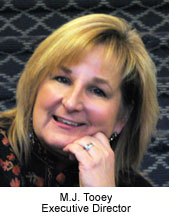Throughout my life I have been blessed and cursed by my ability to see both sides of an issue. In the past, compared to many of my respected academic library colleagues, I have taken a moderate approach to the subject of open access. I believe that open access is the right way to go, but also understand that publishing is a business. Society publishers use revenues to support their activities and services to members and commercial publishers need profits to return money to investors and shareholders.
The recent revelation in the January 25 issue of Nature that the Association of American Publishers, on behalf of its Professional and Scholarly Publishing Division, is spending hundreds of thousands of dollars to hire Eric Dezenhall, "the pit bull of PR," to fight the growing support for public and open access, appalls but does not surprise me. Desperate people do desperate things.
Through my service in the Medical Library Association and on library advisory boards for the Federation of American Societies for Experimental Biology (FASEB) and the New England Journal of Medicine, I have participated in and facilitated countless panels where reasonable people from both sides of the table have had civil discourse on how the scholarly publishing model needs to change. This latest revelation has engendered more discussion and disgust than I have seen in the almost five years of debate.
With this recent turn of events, it’s time to take a firm stand and set the record straight on open access!
Some open access facts:
- Open access journals are peer-reviewed.
- Peer review is not an expense for the publisher. It is based almost completely on free labor from the research community.
- Publishers typically do not pay authors for their articles and authors frequently have to pay additional publication charges.
- The Cornyn-Lieberman Federal Research Public Access Act (FRPAA) only affects federally funded research. The current NIH policy "Enhanced Access to NIH Research Information" only affects NIH grant recipients, and is voluntary.
- The world has changed. If the noble goal of scholarly communication is the dissemination of research and important discoveries, isn’t it imperative and morally right that this information be disseminated as widely as possible and shared for the greater good?
The Association of Research Libraries has prepared a response to this issue.
Here’s how you can get involved in this discussion:
- Today, February 15, students across the country will be rallying for a "National Day of Action" for access to publicly funded research. Freeculture.org, the international student movement for free culture, in collaboration with the Alliance for Taxpayer Access (ATA), have organized the event. Learn more and attend the event at the HS/HSL.
- Make a commitment to educate yourself and others about this debate. The HS/HSL scholarly communication web page is an excellent way to start.
- Additionally, on February 20 from 9-10, staff from the library will offer a class on Open Access Publishing. Registration for this session is free to UMB.
As always I welcome your thoughts and comments on this important issue.
Contact us through your school’s liaison or Ask Us!
![]()






